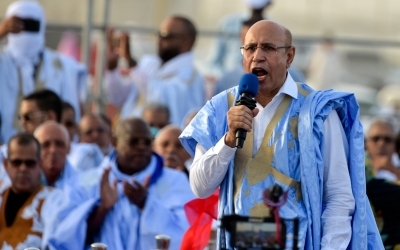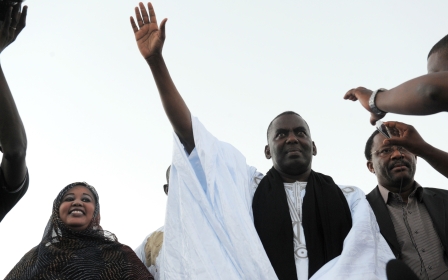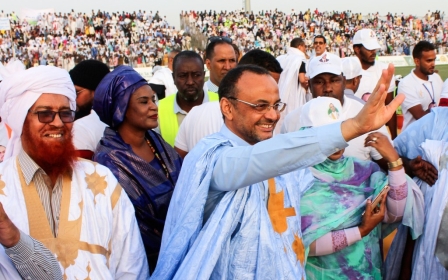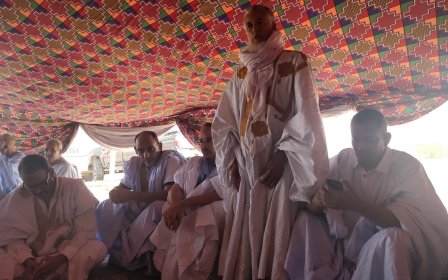Mauritanian authorities brutally crack down on post-election protests, videos show
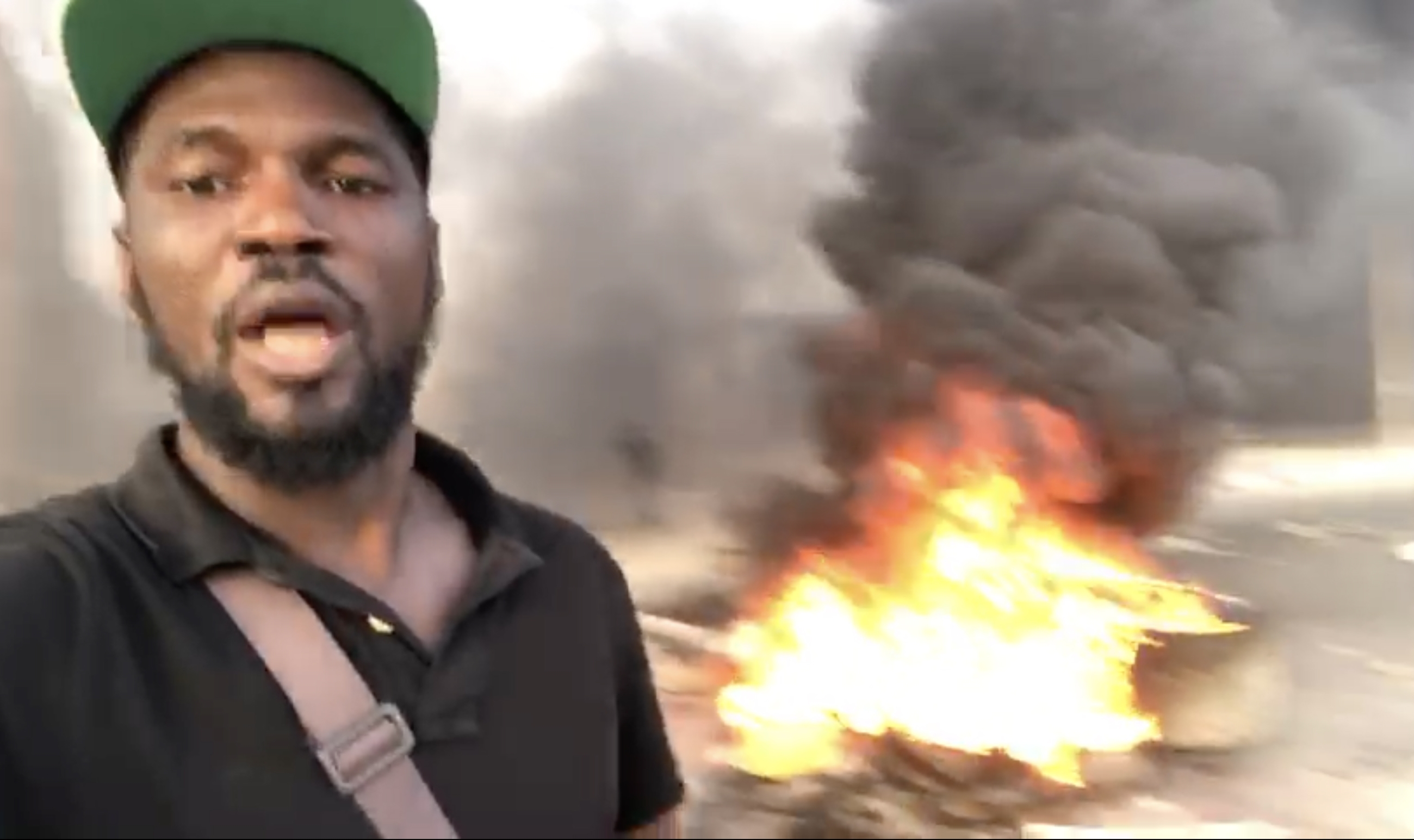
Video footage has emerged from Mauritania purportedly showing a heavy-handed crackdown by authorities as post-election protests grip the country.
The Saharan country has been under an internet blackout since Tuesday, as authorities try to contain protests that erupted after opposition candidates rejected the results of Saturday’s presidential election.
New MEE newsletter: Jerusalem Dispatch
Sign up to get the latest insights and analysis on Israel-Palestine, alongside Turkey Unpacked and other MEE newsletters
The videos, which have not been verified, appear to show police in riot gear facing off against protesters, streets filled with the thick black smoke from burning tyres, and, in one instance, several policeman beating an unarmed protestor with their batons.
Authorities have sought to blame the unrest on “foreign hands” from neighbouring sub-Saharan African countries. Around 100 people have been arrested, the state news agency said.
One video taken from a building overlooking a street shows an unarmed man in traditional clothing being dragged away by policemen in full riot gear, before he collapses to the floor after being struck in the head by a shield.
As he is pulled off the floor and lifted into the back of a pick-up truck he is beaten by several policeman using long batons.
In another video, protestors appear to pursue a policeman, who is hit by a projectile and falls to the ground before being set upon. One of the protestors seizes his baton and delivers blows.
A third video shows a man speaking directly to the camera on a wide potholed street littered with burning tyres.
Addressing Mauritania's armed forces he says: "The military who are leading and pretending that they will never leave power, the country's is not only yours. It belongs to the people."
Voting irregularities
Small-scale protests began on Sunday as Mauritania’s election commission declared former army chief Mohamed Ould Ghazouani the winner of Saturday’s presidential election with 52 percent of the vote, avoiding a second round.
Ghazouani is seen as the political heir to President Mohamed Ould Abdel Aziz, who has ruled Mauritania since taking power in a 2008 military coup.
However, opposition figures quickly launched an appeal against the result, alleging “irregularities”.
'People are frustrated because they are feeling that their victory has been usurped by the authorities'
- Hamdy Lehbouss, Abeid spokesperson
Anti-slavery activist Biram Dah Abeid, who came in second with 18.6 percent of the vote, said on Wednesday: "We noted that there was multiple voting and many other irregularities.”
Police raided Abeid’s headquarters with teargas grenades and smashed windows, making it “unusable”, a spokesperson told the AFP news agency on Monday.
Footage is circulating around the country of Abeid assessing the damage in his headquarters while covering his nose and mouth with the fabric of his white robe.
“People are frustrated because they are feeling that their victory has been usurped by the authorities,” Hamdy Lehbouss, Abeid’s spokesperson told MEE. “People are being arrested and tortured without any reason.”
Lehbouss said that the nationwide spread of protests, including in the major commercial centre Nouadhibou in the country’s north, was evidence that Ghazouani could not have won outright in the first round.
“We think that if we see the mobilisation everywhere in the country we know that the government candidate could not win this election in the first round,” he said.
'Tired rhetoric'
Opposition figures arrested include Samba Thiam, leader of the Progressive Forces for Change and an author of key opposition volume "Manifesto of the Oppressed Black Mauritanian".
Police also raided the headquarters of presidential candidate Kane Hamidou Baba.
Abeid, Thiam and Baba, are leading figures within Mauritania’s black communities, which make up to 70 percent of the population in a country that has been politically and economically dominated by minority Arab-Berbers since its independence from France in 1960.
The majority of protestors appear to be drawn from Mauritania's black communities, according to the footage.
"The situation of black Mauritanians is very chaotic," Abdoulaye Sow, of US-based Mauritanian Network for Human Rights, told MEE.
'We have a regime that has been always exercising the power for the sole interest of one ethnic group'
- Abdoulaye Sow, activist
"People are fed up with the injustice and inequality. Not only do they think their votes were stolen but they are also protesting against the systemic racism they go through in their daily lives," he added.
"This is a country that has the highest slavery rate in the whole world. Black Mauritanians have always been treated as second-class citizens. That's mainly the reason why almost all protesters are black.
"We have a regime that has been always exercising the power for the sole interest of one ethnic group: the Arab-Berbers, who are the ruling class in Mauritania."
Rights group Amnesty International on Thursday called on authorities to show “restraint”.
In a statement, West Africa researcher Francois Patuel said: “The authorities must exercise restraint in dealing with the protesters, including ensuring their safety and opening up the internet space so that people can freely express themselves and share information.”
Patuel said the authorities are justifying their repression by using "tired thretoric" blaming foreigners for the unrest.
“This is toxic and highly problematic in a country that is still battling entrenched racial discrimination,” he added.
Middle East Eye delivers independent and unrivalled coverage and analysis of the Middle East, North Africa and beyond. To learn more about republishing this content and the associated fees, please fill out this form. More about MEE can be found here.


